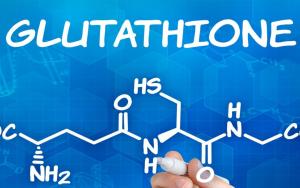Benefits of Glutathione
Body
Benefits of Glutathione
Brain health and glutathione
Neurons in our brains become damaged or die as we age, resulting in neurodegeneration. Certain neurodegenerative illnesses, such as Alzheimer's and Parkinson's Disease, have been linked to high levels of oxidative stress and low glutathione levels (5). One of the numerous benefits of glutathione is that it can assist to slow down the degradation process and damage to brain tissue due to its antioxidant function.
Immunity and glutathione
s acetyl glutathione enhances our immune system's strength and protects us from invaders and illnesses.
Active glutathione (GSH) has been shown to prime our white blood cells (lymphocytes) (6), which are responsible for our body's first line of defence (natural killer and T cells), allowing T cells to produce more substances that fight infections, assisting in the control of bacterial and viral infections.
GSH also helps to boost innate and adaptive immunity as well as guard against microbial, viral, and parasite diseases by modulating the behaviour of various immune system cells (7).
Inflammation and glutathione
Toxins in the environment, poor food, stress, infections, and other lifestyle variables can disrupt the body's natural equilibrium, leading in chronic, systemic inflammation. When this occurs, the body requires additional protection.
By instructing and affecting our immune cells, glutathione has been proven to govern the increase and decrease of inflammation (7). Glutathione levels that are out of equilibrium have also been linked to autoimmune disorders. Glutathione levels can be rebalanced to improve immune system function and reduce chronic inflammation.
The cardiovascular system and glutathione
Because of its capacity to neutralise the 'lipid oxidation' process, glutathione may help to avoid heart attacks and strokes (8). LDL cholesterol in the blood can be 'lipid oxidised,' resulting in plaque (atherosclerosis) forming on the walls of blood vessels, causing harm to the lining. These plaques can rupture and break off, obstructing blood flow and resulting in heart attacks or strokes.
Glutathione peroxidase is an enzyme that helps glutathione deactivate the chemicals and free radicals that cause lipid oxidation, preventing damage and lowering the risk of heart attacks.
Athletic performance and glutathione
When taken before an exercise, glutathione appears to assist increase performance, reduce fatigue, and lower blood lactic acid levels, according to research (9). Increased lactic acid levels in the body can cause weariness, low blood pressure, muscle aches, a reduction in body temperature, and respiratory issues.
Skin and glutathione
Sun, wind, UV rays, and environmental contaminants can cause skin damage over time, resulting in dry, wrinkled skin and age spots. Glutathione aids in the healing and regeneration of cells, which helps to decrease the appearance of wrinkles and increase skin flexibility. s acetyl glutathione was found to be effective in creating the skin lightening effect, which appears to be quite slow and takes weeks to develop, according to one study (10).
Glutathione has been demonstrated in several trials to reduce skin melanin (pigmentation). Glutathione works on skin pigment formation by blocking the enzyme tyrosinase, which is involved in the production of melanin (11).











Comments